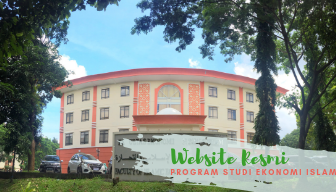Sistem Pengupahan di CV. Be Clean Makassar berdasarkan Perspektif Maslahah
Abstract
Conflict between workers and employers has become a phenomenon. A number of demands that arise in every demonstration, the gap between the welfare of workers with the cost of living and the work done in the workplace. This study aims to determine the wage system in CV. Be Clean Makassar with a perspective review of maslahah. This study uses a phenomenological research with a qualitative approach. The sample in this study were workers and business owners CV. Be Clean Makassar. This study uses data collection methods using interviews, observation and documentation. The results of this study are assessed from the fact that maslahah must be in line with the objectives of the Shari'a, maslahah must be generally accepted, maslahah must be true, not conjecture. Wage system in CV. Be Clean Makassar shows that its wage system is in line with the shari'a objective of providing wages at the beginning of the month, never delaying payment of wages. However, the wage system at CV Be Clean Makassar has not been able to provide wages based on the Gowa UMP.
References
Al-Qur’an dan Terjemahnya, Kemenag, ‘Al-Qur’an Dan Terjemahan’, 2021
Alim, M. Sahirul, ‘Sistem Pengupahan Outsourcing Dalam Perspektif Islam (Studi Kasus Pada PT. Mahakam Kencana Intan Padi Surabaya)’, 5.6 (2019), 501–13
Aravik, Havis, ‘Konsep Buruh Dalam Perspektif Islam’, 4 (2018), 1–10
Caniago, Fauzi, ‘Ketentuan Pembayaran Upah Dalam Islam’, 5 (2018), 38–48
DSN MUI, Dewan Syariah Nasional Majelis Ulama Indonesia, ‘Dewan Syariah Nasional–Majelis Ulama Indonesia Fatwa’, 2021
Fitriyah, Nur Aini, ‘Analisis Hukum Islam Dan Hukum Positif Pengupahan Pekerja Travel Umrah Haji PT Indonesia Super Holiday Surabaya’, 2020
Ghofur, Ruslan Abdul, Konsep Upah Dalam Ekonomi Islam (Bandar Lampung: Arjasa Pratama, 2020)
Ghufron, Moh. Idil, ‘Kebijakan Perusahaan Tentang Upah Ketenagakerjaan Di Indonesia Perspektif Maqashid Al-Syariah’, 2020, 10–21
Kemenag, Tafsir, ‘Tafsir Kemenag’, 2022
Kurnia, Ade, Abdul Wahab, and Urbanus Uma Leu, ‘Tinjauan Ekonomi Islam Atas Sistem Pengupahan Karyawan Home Industry Meubel’, 4 (2018), 123–35
Mardhiah, Nur, ‘Islam Dan Perburuhan: Pembagian Kerja, Safety Networking Dan Maslahah Pada Sistem Pengupahan Di Indonesia’, 9.2 (2019), 184
Nabilah, Gina, ‘Penerapan Sistem Pengupahan Dan Perlindungan Tenaga Kerja Perspektif Ekonomi Islam ( Studi Kasus Home Industry Nd Food )’, 2018
Rachmandita, Fitria Puspita, ‘Pembaharuan Hukum Ketenagakerjaan Dalam Sistem Pengupahan Berdasarkan Prestasi Pekerja Sebuah Konkretisasi Dari Radbruch Formula’, 2.5 (2021), 356–70
Rahayu, Sri, No Titl (CV. Be Clean Makassar, 2022)
———, Wawancara, 2022
Ridwan, ‘Regulasi Upah Dalam Fiqh’, Alqalam, 25.1 (2008), 43
Saat, Sulaiman, and Sitti Mania, Pengantar Metodologi Penelitian Panduan Bagi Penelitian Pemula (Makassar: Pusaka Al Maida, 2020)
Sarwono, Jonathan, Metode Penelitian Kuantitatif Dan Kualitatif (Bandung: Graha Ilmu, 2006)
Sulaiman, Wawancara, 2022
Syakroni, M, ‘Metode Maslahah Mursalah Dan Istishlah ( Studi Tentang Penetapan Hukum Ekonomi Islam )’, 3.1 (2017), 187–201
Waliam, Armansyah, ‘Upah Berkeadilan Ditinjau Dari Perspektif Islam’, 5.2 (2017), 265–92
Yono, and Amie Amelia, ‘Upah Perspektif Islam Dalam Pengembangan Ekonomi’, 12.1 (2021), 121–37
Copyright (c) 2022 Muhammad Sabrina

This work is licensed under a Creative Commons Attribution 4.0 International License.




